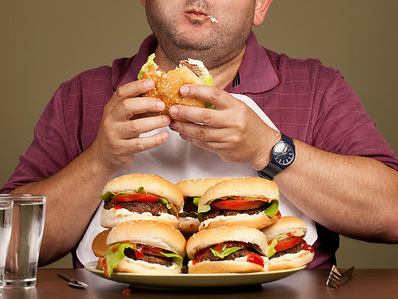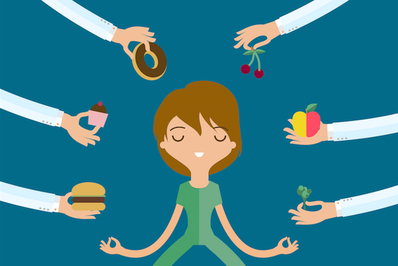|
In media, we hear about anorexia and bulimia but what about everything else in between? Disordered eating refers to a wide range of abnormal eating behaviours, many of which are shared with diagnosed eating disorders. The main thing differentiating disordered eating from an eating disorder is the lesser severity and frequency of behaviours. Skipping meals, following fad diets, calorie counting, fasting, binging and obsessing over the scale all are common behaviours. Emotional eating and binge eating are brutal habits to break. Many of us will experience some sort of binging episode at a point in time even if it doesn’t develop into a full blown eating disorder. The truth is that society puts pressure on us to look a certain way or be a certain weight, and we turn to experiment with drastic dieting strategies with major restrictions. These restrictions ultimately set us up to fail and binge on the forbidden foods. The trick is breaking that cycle and building a better relationship with food. 1) CHANGE YOUR DIET MENTALITY Following a black-and-white approach to nutrition, where certain foods are labelled off limits, is setting yourself up for binging on all those restricted foods. Many of us get caught up in counting calories and hitting macro goals our willpower gets channelled beyond its capacity. Instead, try to take a break from the counting game to set yourself up for long term success. Simple nutrition guidelines to try:
Know that you cannot break all emotional eating and binging in a single day. We all want that quick-fix but that isn’t the way we will ultimately be successful. If you have a bad day, don't freak out. A lot of the progress will be two steps forward, one step back, not a straight forward thing. The most important thing to remember is to stay consistent and use positive momentum to build new habits. 3) TRAIN TO GET STRONG, NOT SHREDDED A common trend among binge-eating habits is workouts revolving around burning as many calories as possible. The problem? This creates negative feelings towards working out, making gym sessions more like a form of punishment. In order to break the cycle, that negative mentality must change. Stop using workouts as punishment and start making them about becoming the strongest version of yourself. Don't worry about burning calories, and instead focus on your performance and what your body is capable of.  4) Stay off the scale Many people who battle binge eating also weigh themselves frequently. Get off the scale. That number does NOT indicate your self-worth. That number does not tell you what’s really going on with your body. It does not indicate your success because as there are so many factors that an influence that number, making it a liar of what actually is occurring. Instead focus on how your clothes fit, how you look in the mirror and the confidence you exude. 5) Learn to listen to your body This may seem common knowledge, but most of us need to relearn how to identify physical hunger. Our body’s signals can often become muddled amidst our emotions, schedule and social life. When you eat, try slowing it down and savouring your food. Listen to your body’s signals and identify when you’re satisfied. Make an effort to stop eating when you’re satisfied, but not overly stuffed. Eat the foods that make you feel best and cut back on those that don’t. Learn to identify physical hunger as your body is smart and can tell you exactly what it needs. Alysha Coughler, RD, Sports Dietitian, MHSc, PTS Sports Dietitian at Evolved Sport and Nutrition Complete Lifestyle Management
2 Comments
30/5/2020 07:26:50 am
I am suffering from anorexia and bulimia which is a big eating disorder. Because of these eating disorders, I am seeing a lot of significant challenges. It is very hard to break these eating habits.
Reply
Leave a Reply. |
Categories
All
Archives
November 2021
|
- Home/ News
- About
- Services/ Store
- Media
-
Learning Center
- ESN Athletic and Healthy Lifestyle Learning Center >
-
Professional Learning Center
>
-
The ESN Sports Nutrition Certificate
>
- ESN Learning Center - Sports Nutrition Certificate Level 1 >
- ESN Learning Center Sports Nutrition Certificate Level 2 >
-
ESN Learning Center - Sports Nutrition Certificate Level 3
>
- Module 1 - Periodization for the Athlete
- Module 2 - Nutrition Strategies to Optimize Recovery
- Module 3 - Sports Nutrition for Children and Young Athletes
- Module 4 - Sports Nutrition for the Aging Athlete
- Module 5 - Nutritional Strategies for Injury Prevention and Concussions
- Module 6 - Nutritional Strategies for the Travelling Athlete
- Module 7 - Tournament Nutrition Strategies
-
The ESN Sports Nutrition Certificate
>
- Contact
Proudly powered by Weebly



 RSS Feed
RSS Feed